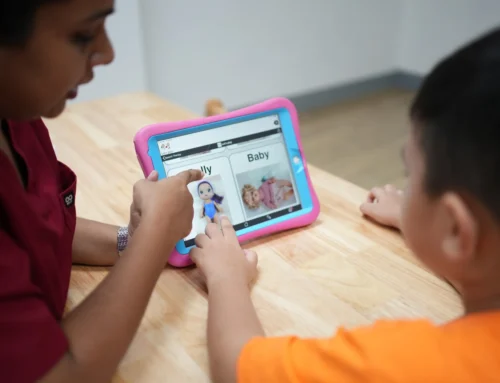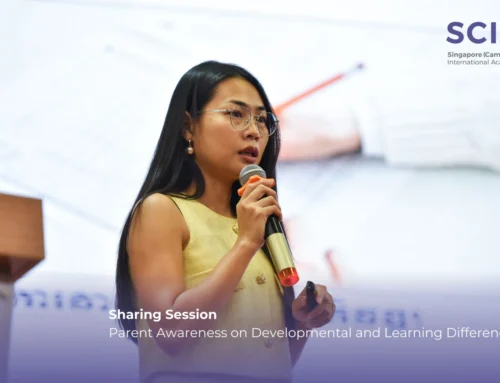The future of telepractice for speech therapy in Cambodia is rapidly evolving. As internet access and digital literacy expand across the country, online speech therapy—once viewed as a temporary solution—has become a vital part of how families, schools, and clinics support communication development. In Phnom Penh and beyond, telepractice is opening new doors for children and adults to receive consistent, high-quality speech-language services regardless of location or mobility challenges.
What Is Telepractice in Speech Therapy?
Telepractice refers to delivering speech therapy services using technology such as video conferencing, apps, or digital tools. It allows a Speech-Language Pathologist (SLP) to connect with clients remotely, guiding them through activities, assessments, and progress reviews.
In Cambodia, where specialized therapists are concentrated mainly in urban areas like Phnom Penh, telepractice offers a bridge for families living in provinces with limited access to in-person therapy. Platforms like Zoom, Google Meet, and specialized therapy apps allow children to continue learning from home with parental involvement.
For a deeper understanding of what speech therapy involves, explore What Is Speech Therapy? and how Speech-Language Services can benefit both children and adults.
Why Telepractice Matters in Cambodia
Access to professional speech therapy remains limited in many parts of Cambodia. For children with conditions such as autism, speech delays, or articulation disorders, early and consistent intervention is critical. Unfortunately, long travel times, limited school-based services, and high demand for qualified therapists often delay support.
Telepractice helps overcome these barriers by making therapy more:
-
Accessible – Families from provinces like Kampong Cham or Battambang can connect with certified therapists in Phnom Penh without needing to travel.
-
Affordable – Online sessions reduce transportation and scheduling costs, making therapy more feasible for families.
-
Consistent – Children can continue sessions during school breaks or public health restrictions, maintaining steady progress.
These benefits align with OrbRom Center’s mission to make speech therapy in Cambodia inclusive and accessible for all learners. Discover more about Speech Therapy in Phnom Penh and how OrbRom’s professionals are supporting children through personalized, evidence-based approaches.
Technology Powering the Future of Telepractice
The future of telepractice for speech therapy in Cambodia depends heavily on innovation and adaptability. Today’s therapists use a mix of tools that make online learning interactive and effective:
-
Therapy Apps: Tools like Speech Blubs or Articulation Station make articulation and language exercises fun and engaging.
-
AAC (Augmentative and Alternative Communication) Tools: For nonverbal children, AAC apps and devices support expressive communication. Read more about AAC Devices and Apps.
-
Virtual Assessments: Digital screening tools allow speech therapists to evaluate communication skills remotely with high accuracy.
-
Parent Coaching Models: Parents receive guidance on how to reinforce communication skills at home through play, storytelling, or daily routines.
Telepractice also integrates seamlessly with other developmental services. Many children receiving Occupational Therapy or participating in Special Needs Intensive Intervention benefit from coordinated online programs that target both speech and motor development.
Overcoming Challenges in Telepractice
While promising, telepractice in Cambodia faces practical and cultural challenges:
-
Internet Access: Stable connections are still unreliable in some regions, especially rural provinces.
-
Technology Skills: Some parents and teachers are unfamiliar with video platforms or online therapy tools.
-
Engagement: Keeping young children motivated in virtual sessions requires creativity and caregiver participation.
Organizations like OrbRom Center are addressing these challenges through parent training workshops, digital literacy support, and simplified online platforms designed for Cambodian families. For example, parents learn how to use play-based activities at home—like those outlined in Top 10 Speech Therapy Exercises You Can Try at Home—to reinforce skills between sessions.
The Role of Schools and Therapists
International schools and inclusive education programs in Phnom Penh are increasingly incorporating telepractice into their special education services. Speech-language pathologists now collaborate with teachers to deliver hybrid models—combining online and in-person sessions—to meet each student’s needs.
Training local professionals is also key to the future. Cambodia’s growing awareness of communication disorders is creating demand for qualified practitioners. Learn more about Training and Certifying Speech Therapists in Cambodia and how this contributes to sustainable service delivery nationwide.
The Road Ahead
The future of telepractice for speech therapy in Cambodia looks bright. As digital access improves and awareness grows, teletherapy will become a standard option alongside in-person services. Hybrid programs that integrate technology with hands-on learning will allow more children—especially those in underserved communities—to receive timely and effective care.
At OrbRom Center, therapists are already combining evidence-based online tools with personalized instruction to help every child find their voice. Whether through virtual or in-person sessions, the goal remains the same: empowering communication and building confidence for a lifetime of learning.







